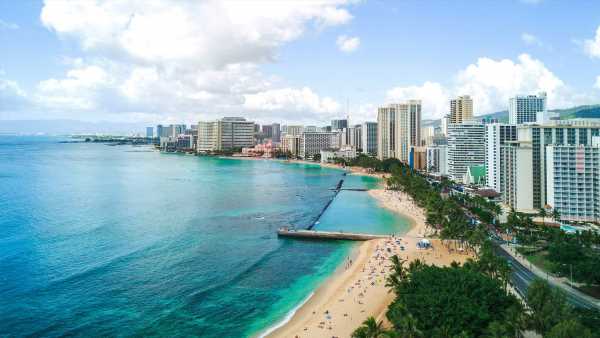Oahu hotels fill up in the wake of Maui wildfires
Hotels on Oahu are seeing occupancy spike in the wake of the West Maui wildfires as tourists and others displaced by the disaster divert to neighboring Hawaiian islands.
According to STR data for Aug. 13 to 19, Oahu achieved the second-highest occupancy rate in the nation for the week, at 88.4%.
STR cited the devastating wildfires as the primary contributor to Oahu’s standout performance, with Maui concurrently reporting significant year-over-year declines in occupancy. Maui’s occupancy was down 27.6%, to 49%, for the week ended Aug. 19.
Despite this steep occupancy decline, Hawaiian hospitality and tourism leaders are emphasizing that properties in unaffected parts of Maui remain operational and open for business.
• Related: On the Record with Hawaii Tourism’s Ilihia Gionson
Maui hotels damaged or destroyed
STR parent company CoStar reported that five Maui properties, comprising 1,904 rooms, sustained damage or were destroyed in the wildfires, representing roughly 2% of total room supply in the Maui market.
Among those properties lost were the Best Western Pioneer Inn and Outrigger Resorts & Hotels’ Plantation Inn, both located in downtown Lahaina.
Arrival numbers across the Islands
Air arrival data this month appears to show a similar picture.
Domestic air arrivals to Honolulu, the primary city on Oahu, have been flat to up compared with 2022 as well as 2019 since the fires broke out, according to data from the state’s Department of Business, Economic Development and Tourism. For example, arrivals to Honolulu were up 9.1% year-over-year on Aug. 15 and up 7.8% on Aug. 16.
The Big Island also saw domestic arrival gains year-over-year, though the picture was more mixed on Kauai. Nevertheless, all three islands have seen strong arrival growth when compared with 2019. (The department does not break out international arrival traffic to specific islands on its website.)
On Maui, however, domestic air passenger traffic is down significantly. Arrivals have dropped in the 60% to 70% range year-over-year since mid-August, according to the state.
Rebecca Tobin contributed to this report.
Source: Read Full Article



